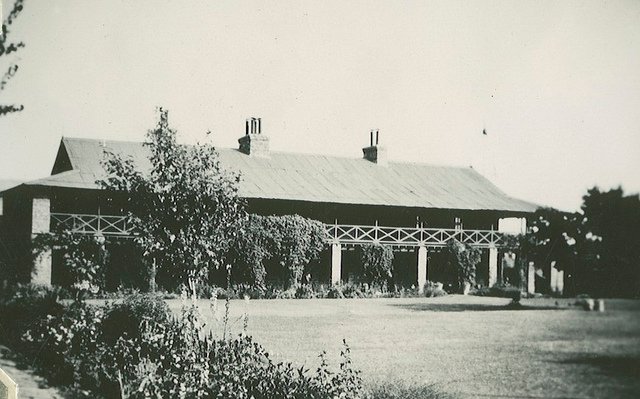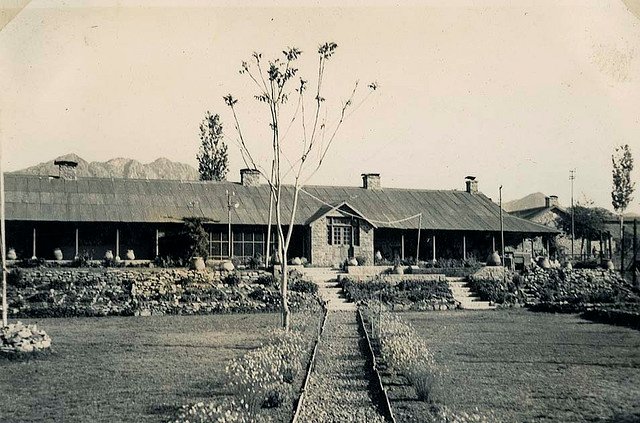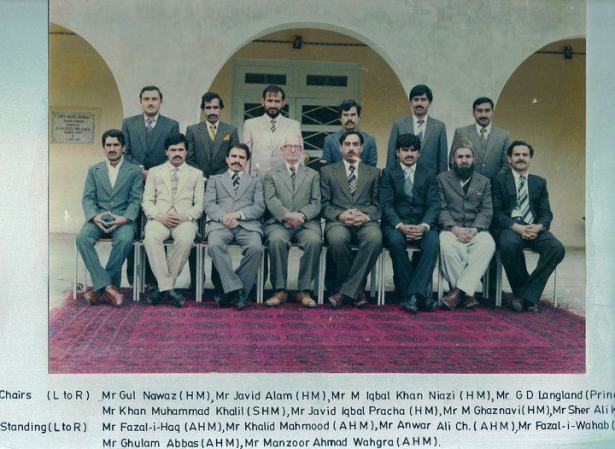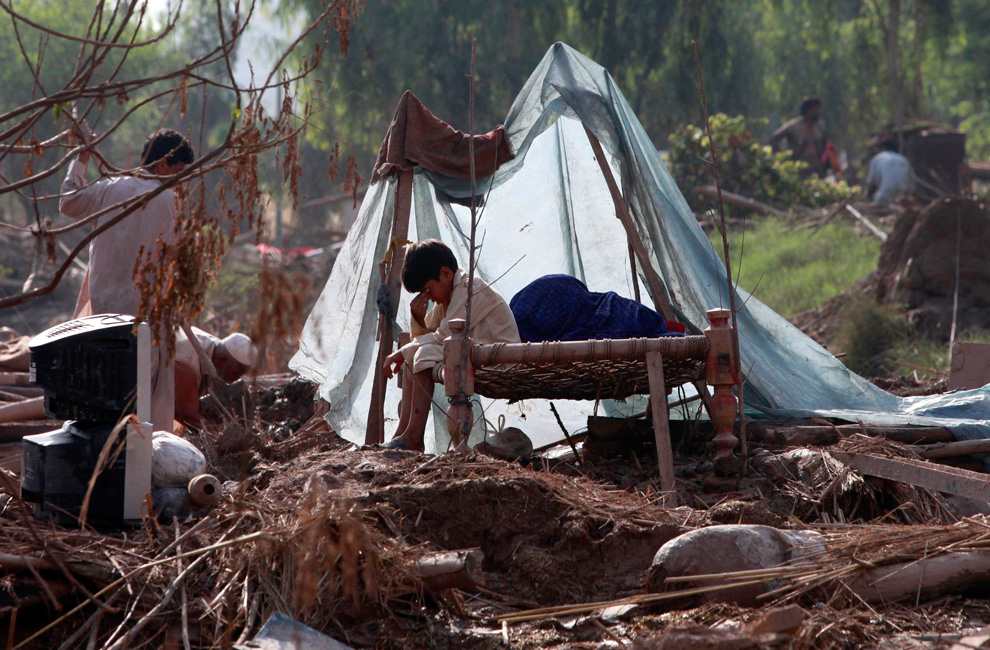![]()
Over the years, the Federally Administered Tribal Areas of Pakistan (FATA) have been a hot topic of discussion, but for all the wrong reasons.
We, the tribal people, have been termed as 'wild' and are somehow depicted as sub-human. Our women are often at the receiving end of pity because they are believed to be subjected and persecuted. Where to start and where to begin here?
Through this post, I would like to introduce you to the Fata I have spent my entire life in by busting some popular myths about this region.
Myth 1: In Fata,women are to remain illiterate and house-bound
Please do not believe everything you read.
In all fairness, there are problems here due to the law and order situation. Nevertheless, several tribal females do pursue education within this region. Many of my female cousins, including my sister, have graduated from renowned colleges in Fata. This is true for other families in my neighbourhood as well.
There are 13 girls’ degree-colleges, out of which 11 are currently operational. Thousands of female students pursue education in these colleges while roughly 200,000 girls are currently enrolled in government-run primary, middle and secondary schools. These figures do not include the thousands who are enrolled in private schools.
Though there is no co-education at secondary or college level, private schools have co-education at primary and middle school level.
Myth 2: Tribesmen either love militants or drones.
The reality is far from this as an overwhelming majority of us tribesmen hate both militants and drones.
We hate militants because they have ruined the lives of people and pushed the advancement of Fata ten years back. My own tribe has been maintaining a lashkar (armed group of people) against militants.
However, we also hate drones because they give militants the much needed ‘ideological space’ and make petty criminals look like divine soldiers.
Additionally, the collateral damage due to drone attacks means that these drones give birth to more terrorists than they manage to kill – hence the vicious cycle of unending violence goes on.
Myth 3: Fata is the hub of militancy and terrorism.
This is one statement that particularly makes me sad. Think about it; this place is the worst victim of militancy. Since 9/11, we have had thousands of tribesmen killed, thousands of us injured, hundreds of schools destroyed and thousands of homes crushed to the ground.
Almost 40% of the 4.5 million people living in Fata have been internally displaced, with nowhere to go.
I myself have lost a couple of good friends and many acquaintances in this vicious war. Yet, people believe that tribesmen are violent people who kill for the sake of killing.
Though, the hard terrain and tough life may have made us hot-headed, most of us yearn for peaceful lives. My own father, despite his lack of education, never allowed me to carry a weapon in my village. He believed that most enmities are sown because verbal arguments turn into a killing spree in the heat of the moment between people who carelessly carry weapons.
Yes, we have some criminals here, but isn't this true for almost every district in the world?
People here just want peace.
Myth 4: Tribesmen are utterly different from ‘typical human beings’.
What can I say here expect that we tribesmen are not unlike regular people.
We require schools for our children, hospitals for our ill and playgrounds for exertion. We need industrial activity, agriculture and business growth to earn a living. We need roads, bridges and other infrastructure projects to facilitate mobility for us. We need electricity, water, sanitation, waste disposal and other services including social uplift projects. We need telephones, mobile phones and the internet to keep abreast with the latest developments in the world.
Our needs and wants are hardly any different from those of typical ‘human beings’.
Myth 5: Tribesmen are wild; they can never be tamed and they don't want to abide by the laws.
The truth is that we are not ‘wild’ at all.
In fact, when seen in context, we may be more law abiding than several people elsewhere in Pakistan. We wholeheartedly follow unwritten laws called tribal customs. Even in the absence of formal police and judicial authorities, the pre 9/11 crime rate in Fata, excluding deaths in tribal feuds, remained lower than that of any settled areas of the country.
Robberies, thefts and rape cases are rare. This is not to assert that the tribal customs are perfect laws; on the contrary, I feel many are primitive. But my point is that our people have the capacity to abide by and accept laws.
There is only one precondition: the laws must not be 'imposed' on us forcefully. Any law that is implemented through a gradual system of evolution is respected and adhered to. Taming the tribesmen requires some skill and affection.
A Pashto saying explains this perfectly:
‘You can take a Pashtun to hell by the way of love but you can't take him to heaven by the way of force.’
Myth 6: Fata is geographically and culturally a coherent entity, capable of being a separate province.
The reality, however, is that we are anything but a coherent entity.
Geographically Fata is like a chain: every tribal agency is connected to the next like the links in a chain. Bajaur Agency, going up to Chitral, is the northern end of this chain while South Waziristan, bordering Balochistan, is the southern end.
A tribesman from Bajaur or Mohmand will never get to see North or South Waziristan, or Kurram or Orakzai under regular circumstances.
Culturally too, Bajaur and Mohmand are nearer to the Yousafzai culture of Malakand and Peshawar valley while the Waziristanis have similarities with Bannu or North Balochistan. The Orakzai and Kurram tribesmen have a somewhat different cultural setup, similar to Kohat, Hangu or perhaps Tirah and Khyber.
For instance, ‘
Attann’, a Pashto folk chorus dance set to the beat of drums, is a symbol of pride in Waziristan or Kurram (Kurramis call it ‘Ghara’) and thus widely practiced. The same ‘Attann’ or any other dance is considered taboo in Bajaur or Mohmand.
Similarly, while Pashto is the language of all Fata tribes, the dialect spoken in Bajaur or Mohmand is altogether different from the one spoken in Waziristan or Kurram/Orakzai.
We may look alike, but we are a diverse province.
Myth 7: Fata is an inaccessible area (Elaqa-e-Gher).
Again, untrue.
Barring a few regions (Tirah and Shawal amongst them), no area of Fata is inaccessible. Most of the major towns are an hour to two hours drive away from the urban cities of Khyber-Pakhtunkhwa (K-P).
For example, Miranshah is an hour’s drive from Bannu; Jamrud is less than an hour’s drive from Peshawar. Ghallanai is an hour’s drive from Peshawar; Khar Bajaur is an hour away from Timergara (Dir) and Orakzai’s Kalaya is an hour or so from Kohat. Parachinar and Wana however, are further away from the cities of K-P.
Myth 8: Tribesmen are fiercely religious so they only vote for religious parties in elections.
Except the 2002 elections (when the MMA wave swept the entire Pashtun region from Swat to Quetta), we tribesmen have traditionally elected non-religious ‘electables’ to the assemblies, mostly of feudal or business backgrounds (though all elections before 1997 were based on ‘
Lungi’ system and not adult franchise).
In 2008, religious parties could claim only two to three NA seats out of the total 11 in Fata (elections were not held to the 12
th seat).
This time, however, the youth vote played a major role in elections and policies. Religion alone has not decided the fate of electoral candidates.
------------------------------------------------------------
A beard and a
shalwar kameez doesn't necessarily mean that person is 'wild' or suppressive towards women. I hope that PTI can enable an environment where all Pakistanis can come and visit us so that they can decide for themselves whether we are like 'typical human beings' or not!
Follow on Shah Zalmay Khan on Twitter @PTI_FATA



 (Shaista with her children. PHOTO: PUBLICITY)
And this is the point where this blog needed to be written.
Here was a woman going through what was very clearly a tough time in her life. She paid the price for being a celebrity and gracefully handled the questions, rather than pretending that this chapter never happened in her life.
Yet, in a very typical voyeuristic pattern, while people devoured the air time and watched Shaista carefully on the show, social media in the following hours started showing comments in which everybody thought all she did was “a big drama”. Sadly, when it comes to celebrities, we are mind-readers, clairvoyants and know-it-alls.
Being a woman and a mother, I know what a soft spot children hold in a parent's heart. I believe that people suggesting that Shaista was using her divorce and children to gain publicity was callous. Why do we assume the worst of celebrities, it baffles me.
Others were upset as to why she talked about her divorce on television. "How low can these celebrities go for fame?” they were asking on social media.
(Shaista with her children. PHOTO: PUBLICITY)
And this is the point where this blog needed to be written.
Here was a woman going through what was very clearly a tough time in her life. She paid the price for being a celebrity and gracefully handled the questions, rather than pretending that this chapter never happened in her life.
Yet, in a very typical voyeuristic pattern, while people devoured the air time and watched Shaista carefully on the show, social media in the following hours started showing comments in which everybody thought all she did was “a big drama”. Sadly, when it comes to celebrities, we are mind-readers, clairvoyants and know-it-alls.
Being a woman and a mother, I know what a soft spot children hold in a parent's heart. I believe that people suggesting that Shaista was using her divorce and children to gain publicity was callous. Why do we assume the worst of celebrities, it baffles me.
Others were upset as to why she talked about her divorce on television. "How low can these celebrities go for fame?” they were asking on social media.
 (Shaista Lodhi with her husband before they got divorced. PHOTO: SCREENSHOT)
I am not trying to be the devil’s advocate, but simply in the spirit of empathy, I imagined what any woman would do in her situation.
In a live television show, with live calls from the viewership, any and every kind of question can be asked. A media person in her position does not have the liberty of pretending that something never happened; she has to face what happened and be answerable even in the most intimate matters of her life.
That must be tough.
Ironically, one of the most difficult things for a woman to live up to is divorce in our society, and playing directly in to this statement was peoples' response on Shaista's
(Shaista Lodhi with her husband before they got divorced. PHOTO: SCREENSHOT)
I am not trying to be the devil’s advocate, but simply in the spirit of empathy, I imagined what any woman would do in her situation.
In a live television show, with live calls from the viewership, any and every kind of question can be asked. A media person in her position does not have the liberty of pretending that something never happened; she has to face what happened and be answerable even in the most intimate matters of her life.
That must be tough.
Ironically, one of the most difficult things for a woman to live up to is divorce in our society, and playing directly in to this statement was peoples' response on Shaista's 





 Officer's Quarters (BOQs) at Razmak Camp - 1930s[/caption]
The British Army had set up their military camps at
Officer's Quarters (BOQs) at Razmak Camp - 1930s[/caption]
The British Army had set up their military camps at  Charles Street, Razmak Camp - 1936[/caption]
By building roads that pierced through the lofty mountains alongside springs boiling forth their salty water, they transformed Razmak into a beautiful hamlet with houses resembling those in the countryside of England. It can be said, without a doubt that Razmak was heaven on earth.
[caption id="" align="alignnone" width="512"]
Charles Street, Razmak Camp - 1936[/caption]
By building roads that pierced through the lofty mountains alongside springs boiling forth their salty water, they transformed Razmak into a beautiful hamlet with houses resembling those in the countryside of England. It can be said, without a doubt that Razmak was heaven on earth.
[caption id="" align="alignnone" width="512"] Officers Mess at Razmak Camp - 1936[/caption]
The ‘Wazirs’ are the native inhabitants of Razmak. They have been living there for ages holding close the traditions that their ancestors introduced to them. Though some of their traditions might worry city dwellers, they seem to be content with their way of life. Their dialect of
Officers Mess at Razmak Camp - 1936[/caption]
The ‘Wazirs’ are the native inhabitants of Razmak. They have been living there for ages holding close the traditions that their ancestors introduced to them. Though some of their traditions might worry city dwellers, they seem to be content with their way of life. Their dialect of  Khushal House (Front); Bilal / Ghazali House (Right)[/caption]
A long time ago when we were on our way to Peshawar, our car broke down and we had to make a stop for a few hours at a nearby Pashtun house. We had never even imagined how warm and welcoming the residents were - we were treated like royalty. They laid down their new blankets on charpoys so that we could sit comfortably and they served us with a lavish display of food too.
That said - if you somehow happen to fall on their bad side, all I can say is, may God help you! Sadly, the only way they see for their
Khushal House (Front); Bilal / Ghazali House (Right)[/caption]
A long time ago when we were on our way to Peshawar, our car broke down and we had to make a stop for a few hours at a nearby Pashtun house. We had never even imagined how warm and welcoming the residents were - we were treated like royalty. They laid down their new blankets on charpoys so that we could sit comfortably and they served us with a lavish display of food too.
That said - if you somehow happen to fall on their bad side, all I can say is, may God help you! Sadly, the only way they see for their  Cadet College Razmak Milestone - at Upper Camp Junction[/caption]
After former Prime Minister
Cadet College Razmak Milestone - at Upper Camp Junction[/caption]
After former Prime Minister Principal and teachers at Cadet College Razmak[/caption]
I remember it so vividly...
The people were full of life and the weather was perfect. Nature was kind to Razmak; it was blessed with pure beauty, fresh vegetables, fruit and milk. Lunch in the summer was incomplete without a jug of lassi (yoghurt drink) with excessive amounts of butter swimming in it. Everything was in perfect harmony. Oh, the good ol’ days!
[caption id="" align="alignnone" width="461"]
Principal and teachers at Cadet College Razmak[/caption]
I remember it so vividly...
The people were full of life and the weather was perfect. Nature was kind to Razmak; it was blessed with pure beauty, fresh vegetables, fruit and milk. Lunch in the summer was incomplete without a jug of lassi (yoghurt drink) with excessive amounts of butter swimming in it. Everything was in perfect harmony. Oh, the good ol’ days!
[caption id="" align="alignnone" width="461"] The Scenic Cadet College Razmak Campus - From the Ridge[/caption]
The day would begin with lecturers and students dashing off towards their respective classes, finding it exceptionally hard to move after devouring a hearty breakfast. Soon after, classes would commence and the day would go on and just like that come to an end.
[caption id="" align="alignnone" width="504"]
The Scenic Cadet College Razmak Campus - From the Ridge[/caption]
The day would begin with lecturers and students dashing off towards their respective classes, finding it exceptionally hard to move after devouring a hearty breakfast. Soon after, classes would commence and the day would go on and just like that come to an end.
[caption id="" align="alignnone" width="504"] An Algad (Torrent) on the way to Razmak[/caption]
Long gone are the days when teachers and students used to walk to and back from college in peace; long gone are the days when the college existed.
The ongoing
An Algad (Torrent) on the way to Razmak[/caption]
Long gone are the days when teachers and students used to walk to and back from college in peace; long gone are the days when the college existed.
The ongoing  College Mosque.[/caption]
I drift into a world where the roads are clean and green. The city is safe with no traffic or impatient queues for CNG...
Here, ladies are free after their morning chores. They walk the streets aimlessly in their ‘shuttlecock burqa’, often stopping over at a friend’s house for a few giggles and a warm cup of tea.
College Mosque.[/caption]
I drift into a world where the roads are clean and green. The city is safe with no traffic or impatient queues for CNG...
Here, ladies are free after their morning chores. They walk the streets aimlessly in their ‘shuttlecock burqa’, often stopping over at a friend’s house for a few giggles and a warm cup of tea.
 Warm tea is served with a side of spicy pakoras; keeping the tradition alive – serving tea without knick knacks was frowned upon. Manners were intact and children were disciplined. They were instructed not to eat more than a biscuit and refuse if offered more. If they were unable to resist, they were given a hefty lecture when they returned home.
Now, forget
Warm tea is served with a side of spicy pakoras; keeping the tradition alive – serving tea without knick knacks was frowned upon. Manners were intact and children were disciplined. They were instructed not to eat more than a biscuit and refuse if offered more. If they were unable to resist, they were given a hefty lecture when they returned home.
Now, forget  I consider myself lucky to have lived there in the better days, and to have enjoyed the simple pleasures of a village life. Surely, those were the best of times and all I can do now is reminisce about them. Unfortunately, there is no going back.
PHOTOS:
I consider myself lucky to have lived there in the better days, and to have enjoyed the simple pleasures of a village life. Surely, those were the best of times and all I can do now is reminisce about them. Unfortunately, there is no going back.
PHOTOS: 





